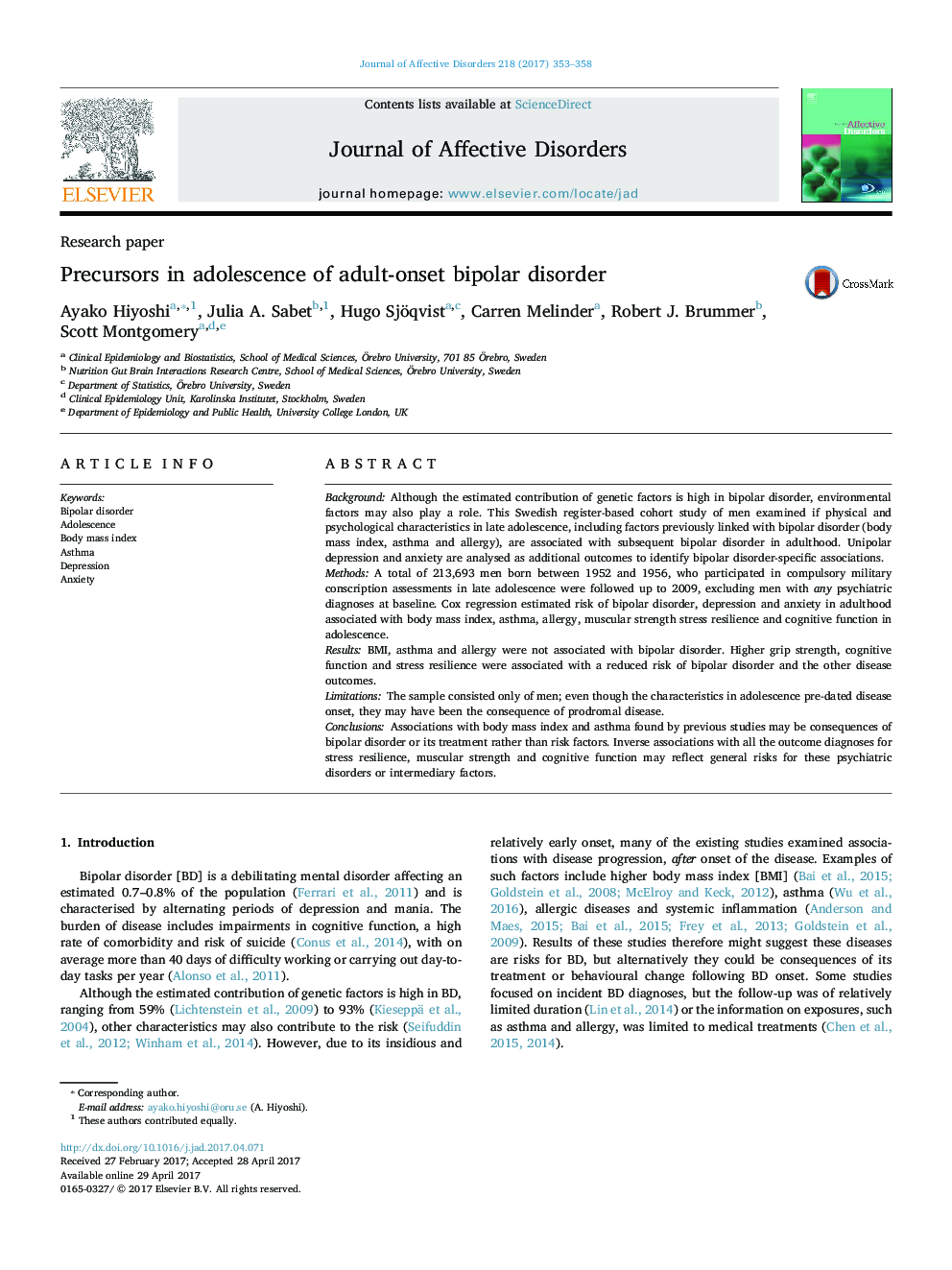| کد مقاله | کد نشریه | سال انتشار | مقاله انگلیسی | نسخه تمام متن |
|---|---|---|---|---|
| 5721968 | 1608107 | 2017 | 6 صفحه PDF | دانلود رایگان |
- BMI, asthma and allergy are not risks for subsequent bipolar disorder [BD].
- High grip strength is associated with reduced risk for BD, depression and anxiety.
- High stress resilience and cognitive function reduced BD, depression and anxiety risk.
BackgroundAlthough the estimated contribution of genetic factors is high in bipolar disorder, environmental factors may also play a role. This Swedish register-based cohort study of men examined if physical and psychological characteristics in late adolescence, including factors previously linked with bipolar disorder (body mass index, asthma and allergy), are associated with subsequent bipolar disorder in adulthood. Unipolar depression and anxiety are analysed as additional outcomes to identify bipolar disorder-specific associations.MethodsA total of 213,693 men born between 1952 and 1956, who participated in compulsory military conscription assessments in late adolescence were followed up to 2009, excluding men with any psychiatric diagnoses at baseline. Cox regression estimated risk of bipolar disorder, depression and anxiety in adulthood associated with body mass index, asthma, allergy, muscular strength stress resilience and cognitive function in adolescence.ResultsBMI, asthma and allergy were not associated with bipolar disorder. Higher grip strength, cognitive function and stress resilience were associated with a reduced risk of bipolar disorder and the other disease outcomes.LimitationsThe sample consisted only of men; even though the characteristics in adolescence pre-dated disease onset, they may have been the consequence of prodromal disease.ConclusionsAssociations with body mass index and asthma found by previous studies may be consequences of bipolar disorder or its treatment rather than risk factors. Inverse associations with all the outcome diagnoses for stress resilience, muscular strength and cognitive function may reflect general risks for these psychiatric disorders or intermediary factors.
Journal: Journal of Affective Disorders - Volume 218, 15 August 2017, Pages 353-358
